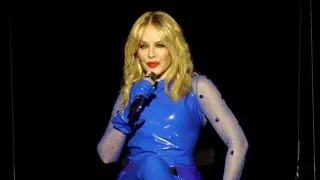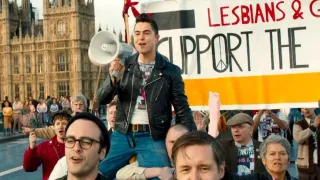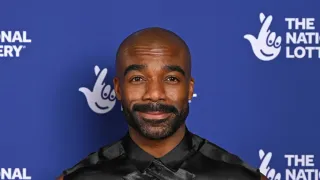April 4, 2024
Tom Ripley Over the Years: To Queer or Not to Queer?
Frank J. Avella READ TIME: 9 MIN.
'Purple Noon' ('Plein Soleil')
There was never a more strikingly handsome Ripley than Alain Delon in 1960's "Purple Noon," directed by celebrated French filmmaker René Clément, who co-wrote the script with Paul Gégauff. The film was the first of its kind, released just five years after the original novel, "The Talented Mr. Ripley," was published.
The movie follows the book faithfully, except for a denouement that felt more forced (due to code standards) than in keeping with Highsmith's more ambiguous ending. Here Dickie is Phillippe (Maurice Ronet), but there's very little chemistry between him and Tom, who, oddly, taunts him and confesses his plan to pretend to be him.
Gorgeously shot by Henri Decaë, "Purple" boasts stunning close-ups of Delon's face – his seductive blue eyes – that will make you swoon. Delon is arguably the most enigmatic Ripley, but he's easily the sexiest; seeing the half-naked Delon is as homoerotic as the film's times would allow. At one point, Delon dons a skimpy bathing suit, and the camera appears to zero in on his crotch.
A Delon footnote, there have been many rumors over the decades about his early same-sex dalliances (with certain lovers coming forward), yet, in 2013, he called homosexuality "unnatural" and said gays should not adopt children. Perhaps we get a bit addled in our twilight years, when our looks begin to go...
"Purple Noon" is currently streaming on The Criterion Channel and can be rented via Prime and AppleTV.
'Ripley's Game'
Liliana Cavani is one of Italy's best and most underrated filmmakers ("The Night Porter," "The Skin"), so it's no surprise that her 2002 take on "Ripley's Game" presents a perfect balance of dark comedy and the macabre. It also boasts a queer aesthetic and a deliciously flamboyant central performance by John Malkovich, who has an amusing cameo in the Netflix series.
Malkovich is by far the most menacing and terrifying Ripley, as well as the most sardonic and witty. Casually planning a murder while on a train, he turns to a co-star (cutie Dougray Scott) and matter-of-factly quips, "Keep my watch, because if it breaks, I'll kill everyone on this train." And he's probably serious.
The moment that sets the plot insanity in motion could not be bitchier, ergo gayer. Ripley shows up at a party and hears the host, Trevanny (Scott), disparaging him. Insulted, he sets out to destroy Trevanny by involving him in a crazy assassination plot led by Tom's gay thug friend (Ray Winstone).
There is even a tinge of attraction between Malkovich and Scott, especially in a scene near the end of the film.
And while this Tom is married, in the film's one intimate scene, he seems much more interested in his wife's backside than her front.
"Ripley's Game" can be rented on Prime and AppleTV.
'The Talented Mr. Ripley'
"I always thought it would be better to be a fake somebody than a real nobody." - Tom Ripley
Minghella's 1999 gem is hands-down the queerest and best Ripley. The homoerotic bonding is off the charts, from Matt Damon's constant ogling of hottie Jude Law to Law flirting right back in a few scenes, to the famous bathtub sequence where Tom asks if he can join Dickie in the tub (with the sense that Dickie is bi-curious), to Tom's reaction to his alleged unrequited feelings. Gay wins the day because writer-director Minghella made the obvious and winning choice in adapting the material.
The filmmaker even created two new characters, including a late-in-the-film love interest for Tom, Peter Smith-Kingsley (Jack Davenport, who would go on to star in the queer classic TV series "Smash"), and the fabulous Meredith Logue (played by the fabulous Cate Blanchett), probably to offset the bland Marge Sherwood (played by the bland Gwyneth Paltrow). It's odd watching their one scene together, knowing Paltrow would win the 1998 Oscar for "Shakespeare in Love" over Blanchett's shattering portrayal of the virgin queen in "Elizabeth," in large part thanks to Harvey Weinstein's bullying of Academy members.
Speaking of horrific Harvey, "The Talented Mr. Ripley" was supposed to be the big Oscar movie for Miramax that year (co-produced with Paramount). A year earlier, he managed a ridiculous upset win over DreamWorks ("Shakespeare in Love" topped "Saving Private Ryan"). But when "The Talented Mr. Ripley" opened to less than amazing business and, despite great reviews, was turning off more conservative Academy members at screenings, Weinstein abandoned the film and threw all his efforts into a lesser work, "The Cider House Rules," thinking it would have a better chance beating DreamWorks' front runner, "American Beauty." (It did not.) It was all a vicious winner-take-all game to Weinstein that reeked of homophobia. "The Talented Mr. Ripley" ended up with five noms (including Law for Supporting Actor) instead of rightfully sweeping them. Today, very few give a second thought to "Cider," and "Ripley" is considered a classic – a queer classic.
"The Talented Mr. Ripley" is currently streaming on Showtime, Hulu, and Prime.






